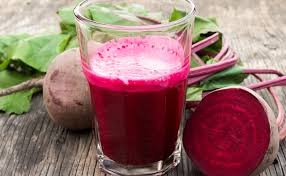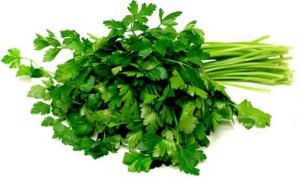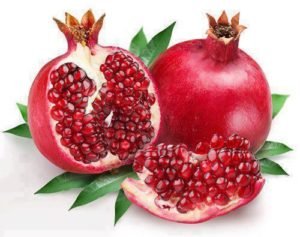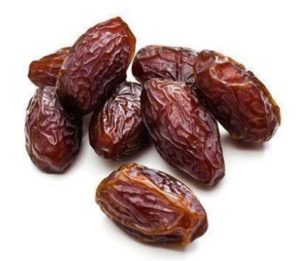Benefits of Beets

They are rich in a plant alkaloid called betaine, as well as the B-vitamin folate, which together deliver a one-two punch for lowering blood levels of homocysteine, which in high levels increases your risk for artery damage and heart disease.
Increase endurance. Lots of athletes eat beets and know research has suggested that nitrates boost endurance performance. In one study, cyclists who drank beet juice could pedal hard 15% longer in a time trial to exhaustion. It takes about three to five beets to get a performance boost, says study author Andy Jones, PhD, dean of research in the College of Life and Environmental Sciences, University of Exeter. “Peak nitrate levels occur two to three hours after you eat or drink them,” he says. So time your intake accordingly if your want to crush your 5K PR.
Nitric oxide relaxes and dilates your blood vessels, which in turn increases blood flow to the brain. As we age, research finds that our capacity to generate nitric oxide diminishes along with our brain’s energy metabolism and neuron activity. So give your brain a boost with beets. In one small 2010 study, 14 men and women (average age of 74) ate a high-nitrate diet, including beet juice, for two days and enjoyed more blood flow to the frontal lobe of their brain, a region known to be involved with executive functioning skills like focus, organization, and attention to detail.
Research shows that betaine, an amino acid found in beets (as well as spinach and quinoa) can help prevent and reduce the accumulation of fat in the liver. Animal studies show that rats given beet juice have higher levels of detoxifying enzymes in their bloodstream. Research on people with diabetes shows that betaine improves liver function, slightly decreases cholesterol, and reduces liver size.
Beets are rich in betalains, a class of potent antioxidants and anti-inflammatories that battle free radical- and inflammation-related chronic diseases like heart disease, obesity, and possibly cancer. Research suggests that betacyanin, the pigment that gives beets its pretty purple hue may help protect against common carcinogens; it has shown promise against laboratory-grown breast cancer.
One cup of beets delivers about 4 grams of dietary fiber, particularly insoluble fiber, which helps reduce the risk of constipation, hemorrhoids, and diverticulitis.
Nitric Oxide is made from one atom of nitrogen (N) and one atom of oxygen (O), this simple, gaseous molecule penetrates every cell, tissue and organ in the body and sends signals to direct a multitude of critical functions such as:
1. Relax and widen blood vessels for improved circulation and blood pressure.
2. Strengthen and rebuild bones from the inside out.
3. Order immune cells to kill “bad” bacteria and abnormal cells before they do harm.
4. Help the brain send and receive messages and boost memory and concentration.
5. Support the healthy function of virtually every organ in your body.
Most studies found nitric oxide levels start to sink gradually as early as 40 years. Japanese researchers found by the time you reach 70s or 80s, you produce and use a staggering 75% less nitric oxide than you did when you were in your 20s.
When your body doesn’t have enough nitric oxide:
1. Arteries tighten and constrict, sending blood pressure up.
2. The lining of blood vessels weakens and cracks, allowing plaque to build-up and shooting cholesterol levels up.
3. Dangerous, artery-clogging blood clots are more likely to form.
4. Risk of heart disease, stroke and other age-related health concerns rise.
Preserving healthy levels of nitric oxide in your body is so crucial for your overall health. MIT researchers uncovered a hidden flaw in nitric oxide. They discovered that the lion’s share of nitric oxide is produced in the mouth – not in the stomach or intestines. The saliva and beneficial bacteria in the mouth are necessary to create nitric oxide. The most important part of producing nitric oxide takes place before you swallow. The longer nutrients are in your mouth, the more nitric oxide you produce. If food, drink, or supplements don’t have time to interact with the saliva and bacteria in your mouth, you can’t produce much nitric oxide.
Beets are a good way to naturally increase nitric oxide levels in your body. In a study at Wake Forest University, researchers had people drink beet juice and then took blood samples and MRIs of their brains. They compared the results to blood samples and MRIs taken of the same people when they didn’t drink beet juice. The blood samples proved that beet juice increased nitric oxide levels. The MRIs showed that within hours of drinking beet juice the blood flow increased in participants’ brains. Blood flow was greater in areas of the brain associated with memory and concentration. They concluded that beets help keep brain cells healthy, and helps you think clearer, remember better, and respond faster.
Hawthorn has been used to treat heart disease for centuries and is a well-known natural solution for heart and circulation health. When mixed with beets, hawthorn creates nitric oxide.
1. Vitamin B12 enhances the ability of cells to process nitric oxide and keeps the brain and nerves healthy.
2. Vitamin C helps make nitric oxide available to cells throughout your body and helps grow and repair tired tissues.
3. Magnesium helps maintain a healthy heart rhythm and prevents calcium from building up in arteries. It relaxes the muscles in arteries so blood flows smoothly.




 The Benefits of Dates
The Benefits of Dates